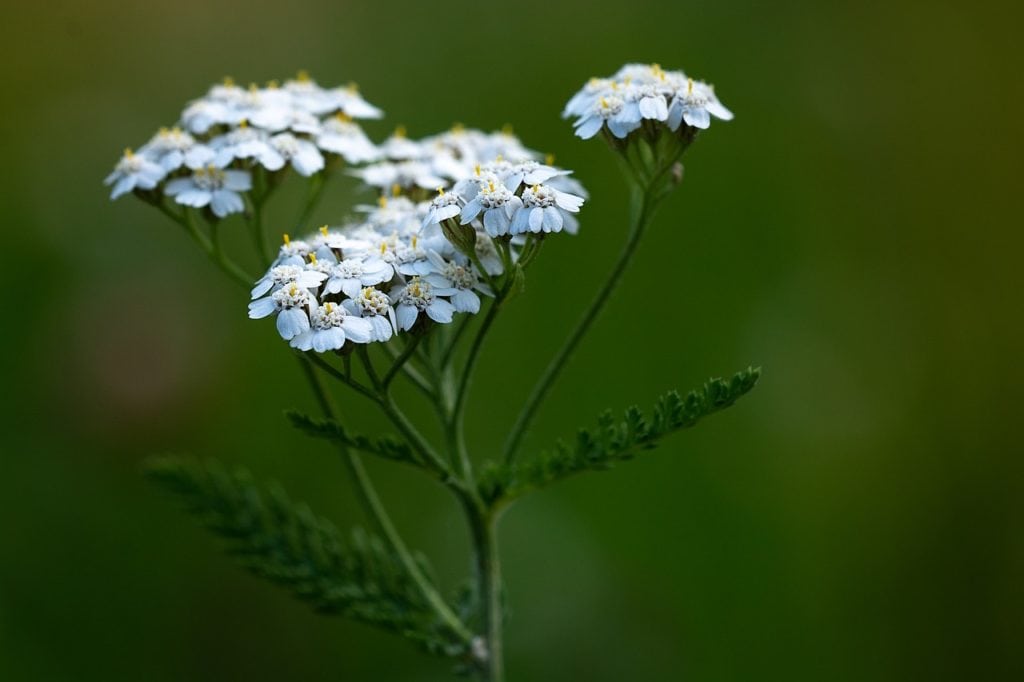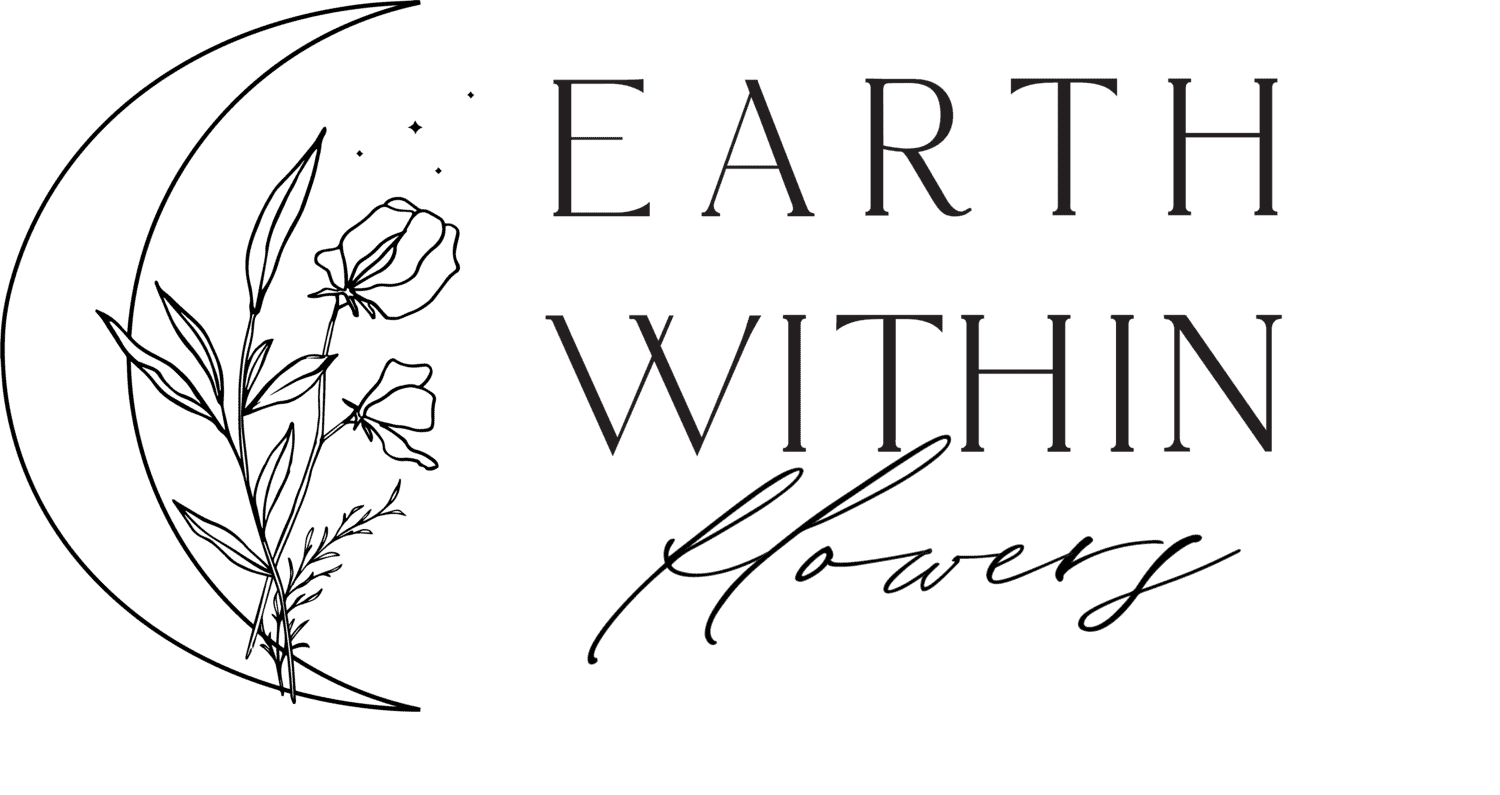It’s no secret that we adore Montana wildflowers here at Earth Within. Below, we share some of our favorite Montana wildflowers and some tips to ethically harvest them!
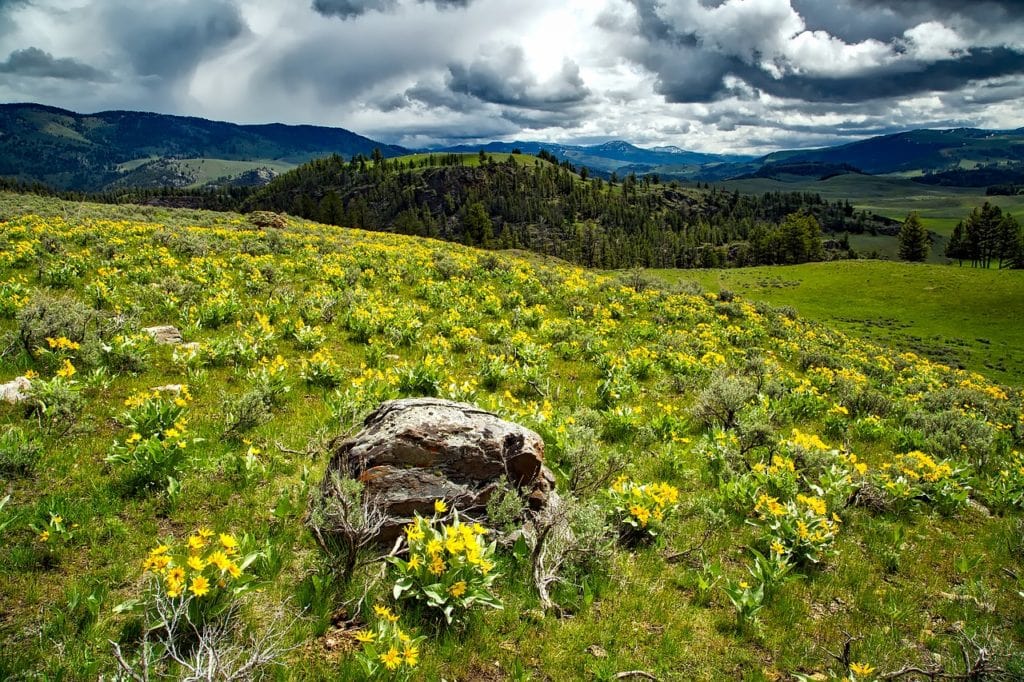
Ethical Harvesting 101// Montana Wildflowers-
Below, are a few things to consider when harvesting Montana wildflowers:
1: Choose Your Location Wisely
First and foremost, make sure you harvest from natural areas that ARE NOT under restoration or overly used areas such as a hiking trails. Furthermore, make sure you are not harvesting in protected areas, such as National Parks where it is illegal to harvest.
2: Be Wildflower Friendly
In addition, NEVER harvest wildflowers in large quantities. Many of them are endangered. Above all, it is essential to educate yourself on what plants and flowers are on your state’s endangered list.
3: Prevent Infection
When you trim trees and shrubs, cut down all the way to the node to prevent disease and infection.
4: Harvest lightly
Finally, do not over-harvest an area. A good rule of thumb that we like to follow is to take, AT MOST, 1/15th of what you see directly in front of you.
Common Montana Wildflowers-
Glacier Lily-
Glacier Lily flower, also known as yellow avalanche-lily, is found in river beds and wet pine forests. It is one of the first flowers to bloom after snowmelt. This flower is a delicious edible treat!
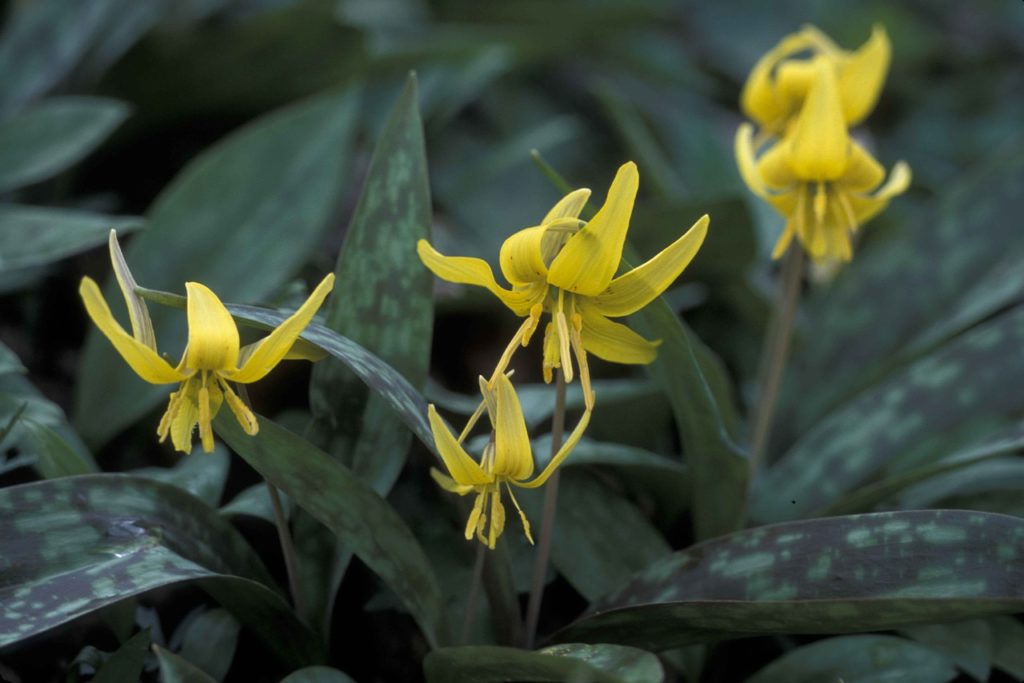
Arrowleaf Balsamroot-
Arrowleaf Balsamroot, a bright yellow flower in the sunflower family, is found on dry grassy hills. The root of Arrowleaf can be harvested in Spring or Fall and made into a tincture to be used as a terrific respiratory aide.

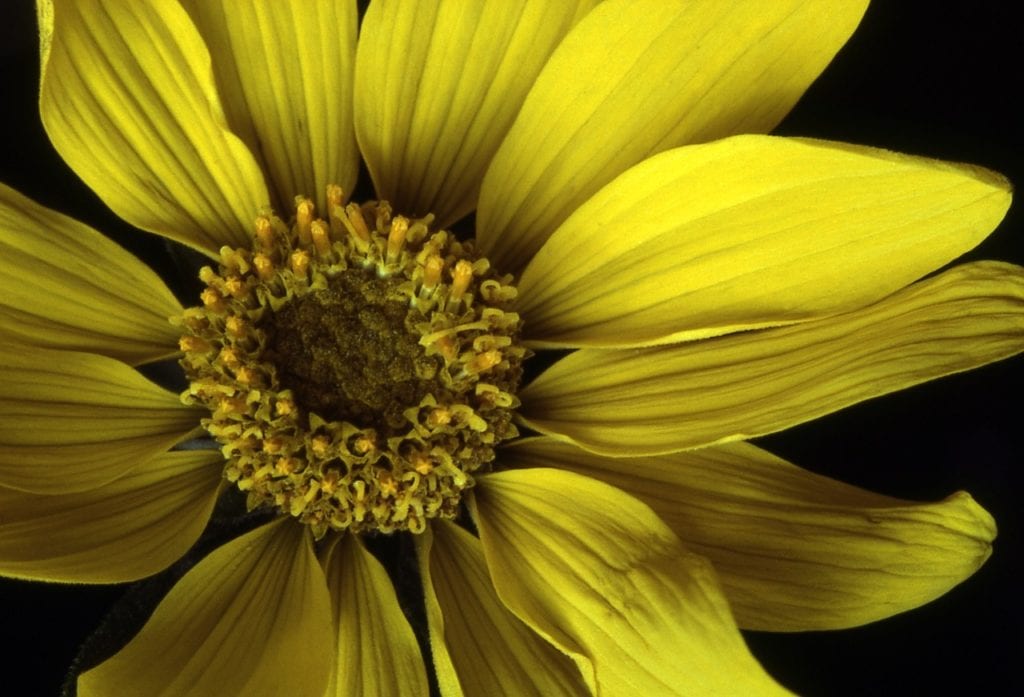
Shooting Star-
Shooting Star is found on dry grassy hills. These purple, pink, or white flowers resemble shooting stars. Be very careful to not over harvest these. Learn how to make a shooting star flower essence here.
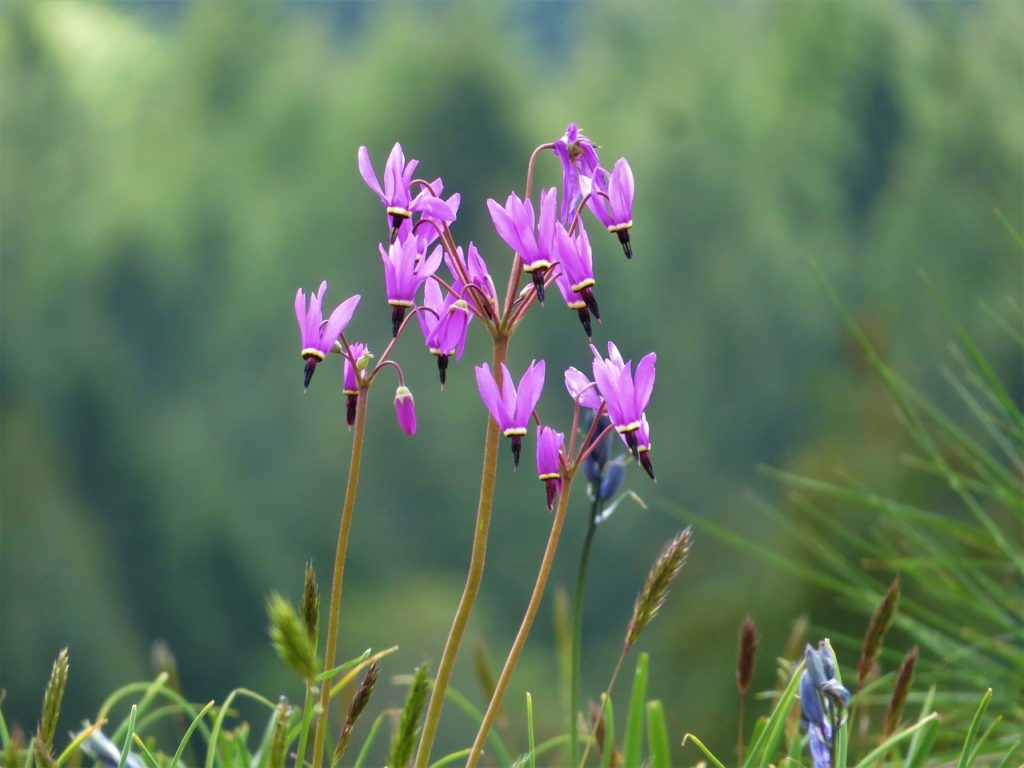
Bitterroot-
Montana’s state flower, Bitterroot, is found on dry grassy hills. The flower comes in shades of deep pink, rose, and white. Traditionally, the roots were gathered and used for food and trade in Native American culture. *** Never Harvest these unless accompanied by a Native American elder who gives you permission.
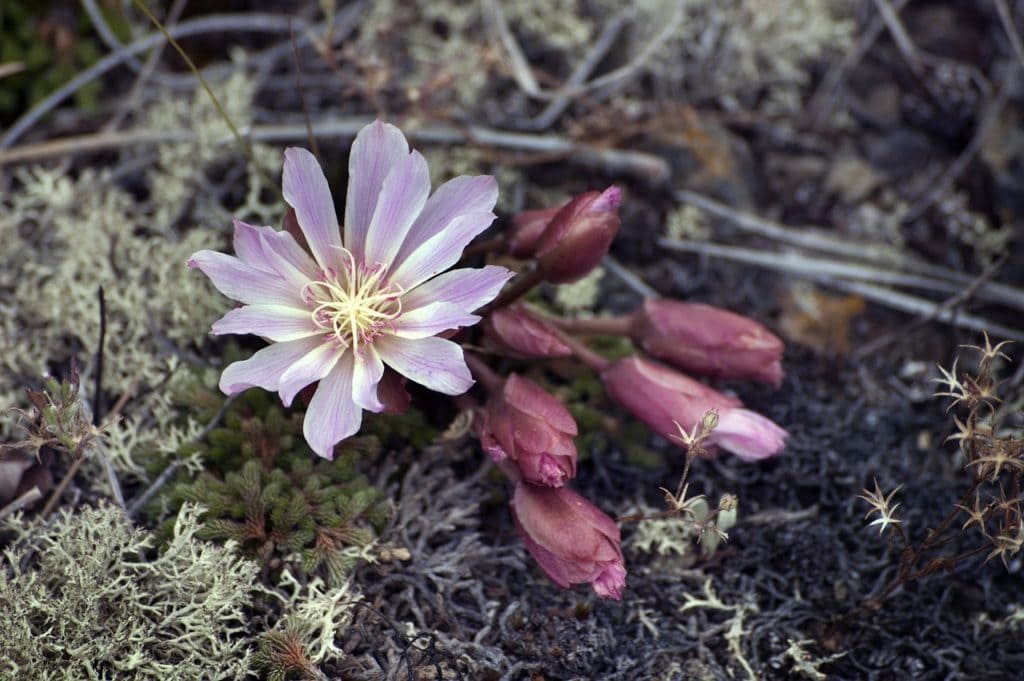
Yarrow-
Lastly, Yarrow, also known as milfoil, is found on dry grassy hills. Yarrow is often used medicinally for gastrointestinal upset and topically as an anti-microbial. Its leaves are often dried and used in tea.
